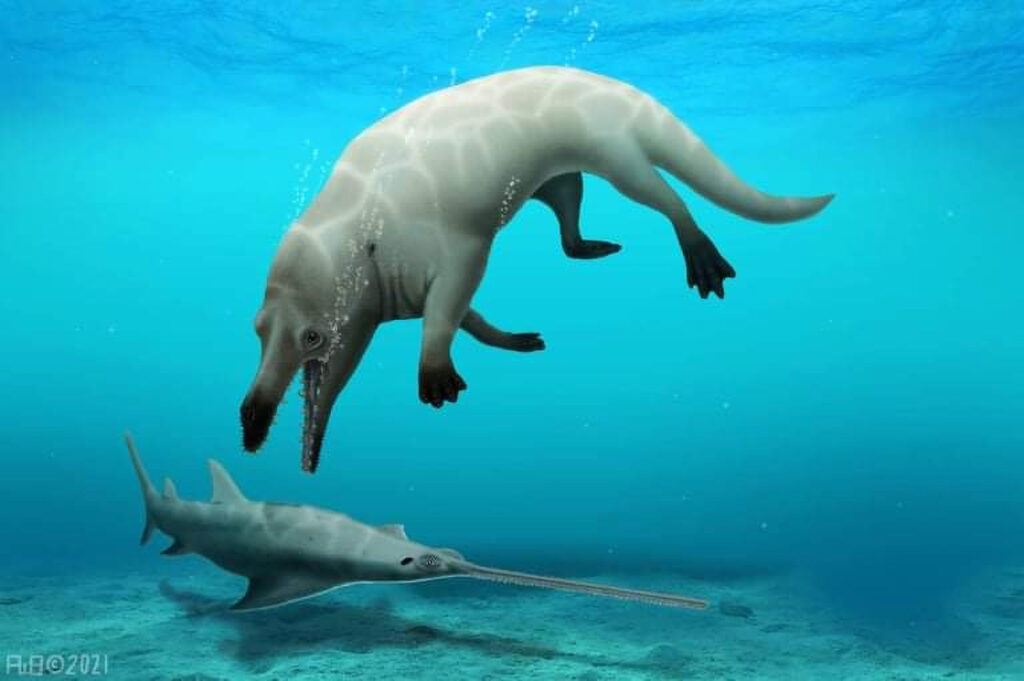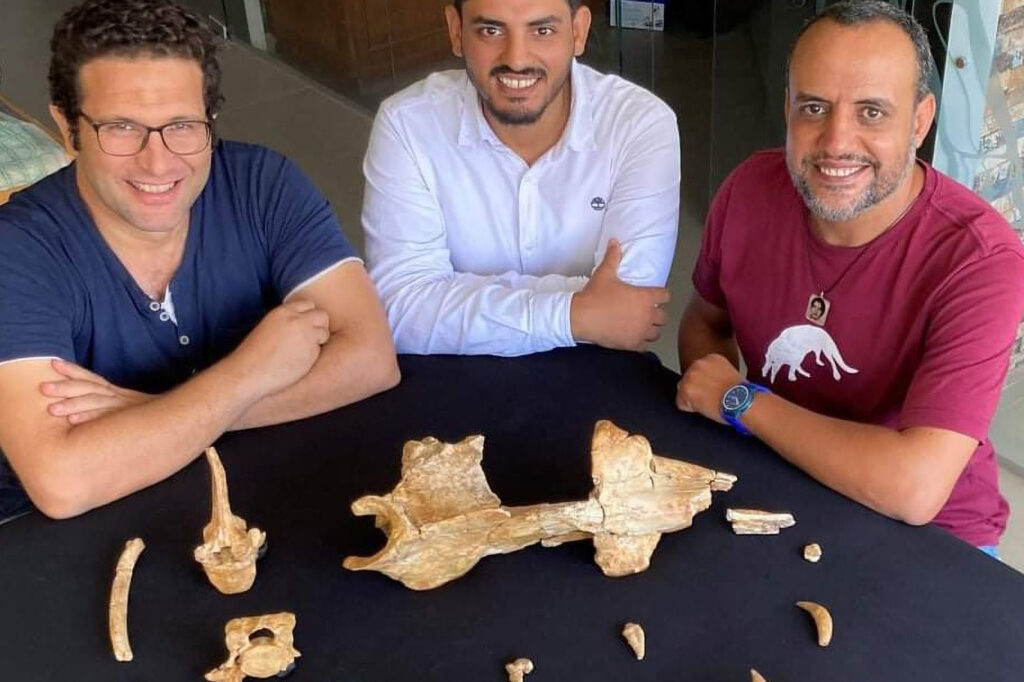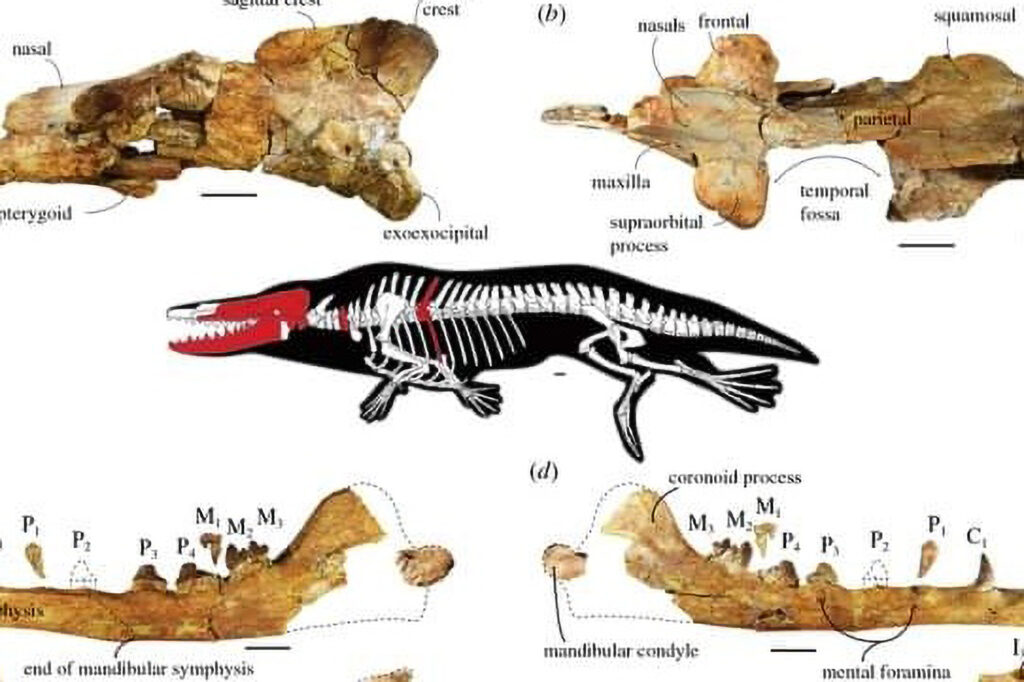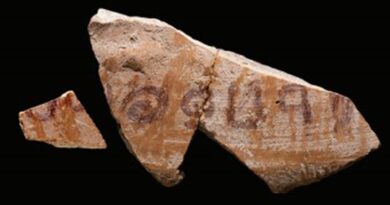Whale With Legs And A Crocodile Snout Named After Anubis The God Of Death As It Would Have Terrifed On Land And Sea
Researchers in Egypt have found the fossilised remains of a ferocious 43 million-year-old four-legged whale which had a mouth like a crocodile and is believed to have dominated both land and sea – earning itself the name ‘Phiomicetus anubis’ after the Egyptian God of Death.
The discovery was made by a team of experts from the Ministry of Higher Education and Scientific Research and the University of Mansoura in the Faiyum Oasis which lies south of Egypt’s capital Cairo.
According to a statement from the Environment Ministry the fossil was extracted in 2008 and its analysis, which began in 2017, was completed this year which confirmed that it belonged to the ‘Protocetidae’ species.

The Protocetidae are a group of extinct whales that existed right in the middle of the mammal’s transition from land to sea.
The bizarre-looking four-legged whale is believed to have dominated both the sea and the land with its powerful bite and sharp senses, leading it to be named after the ancient Egyptian God of Death ‘Anubis’.
Doctor Jasmine Fouad, Minister of the Environment, said in a statement made by the Environment Ministry: “The whale has been named Fomests-Anubis which combines the name of the place it was discovered, Fayum, and the name of the ancient Egyptian God Anubis .”

Abdullah Gohar, a graduate student at Mansoura University who worked on the discovery, told local news site Al Arabiya that the whale would have been around 3 metres (9.8 feet) long and weighed 600 kilogrammes (1,322 lbs).
Doctor Mohamed Samh, director of the Department of Geology and Excavations, added to the statement: “This whale is older than all the African whales found so far. Whilst its jaw suggests that it had an incredibly powerful bite, possibly stronger than crocodiles.”
He added: “The shape of the fossil makes it resemble a land-dwelling animal more so than an aquatic species. Fossilised remains of its skull, thoracic cage bones and parts of the lower jaw were successfully extracted and analysed.”

According to the statement made by the ministry, the whale is totally different from all previously discovered whale species.
Its anatomical features have shown that it had large predator abilities, strong jaw muscles which allowed it to dominate both its habitats.
The details of the discovery were published in a paper titled ‘A new protocetid whale offers clues to biogeography and feeding ecology in early cetacean evolution’ in the Royal Society Journal yesterday (25th August).



